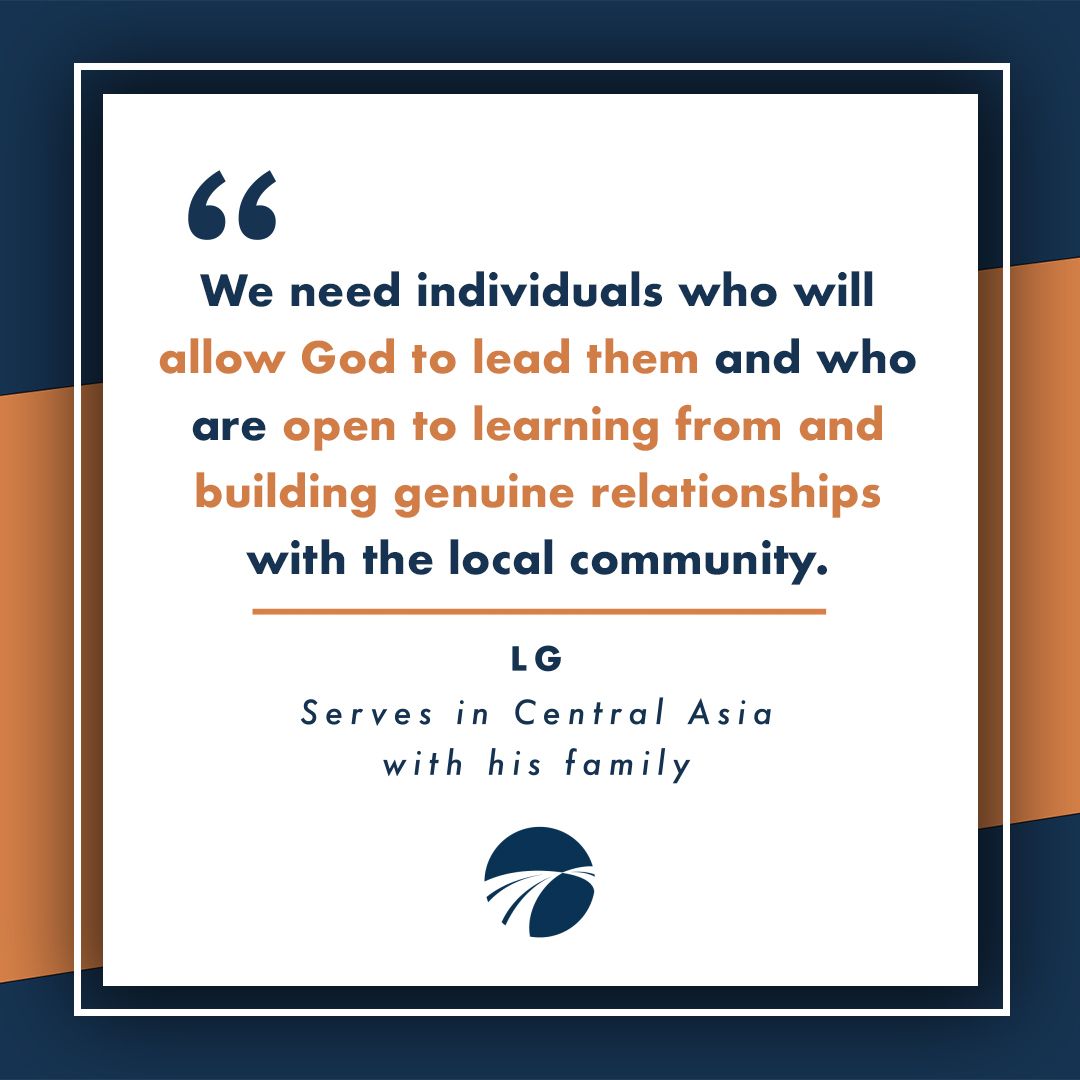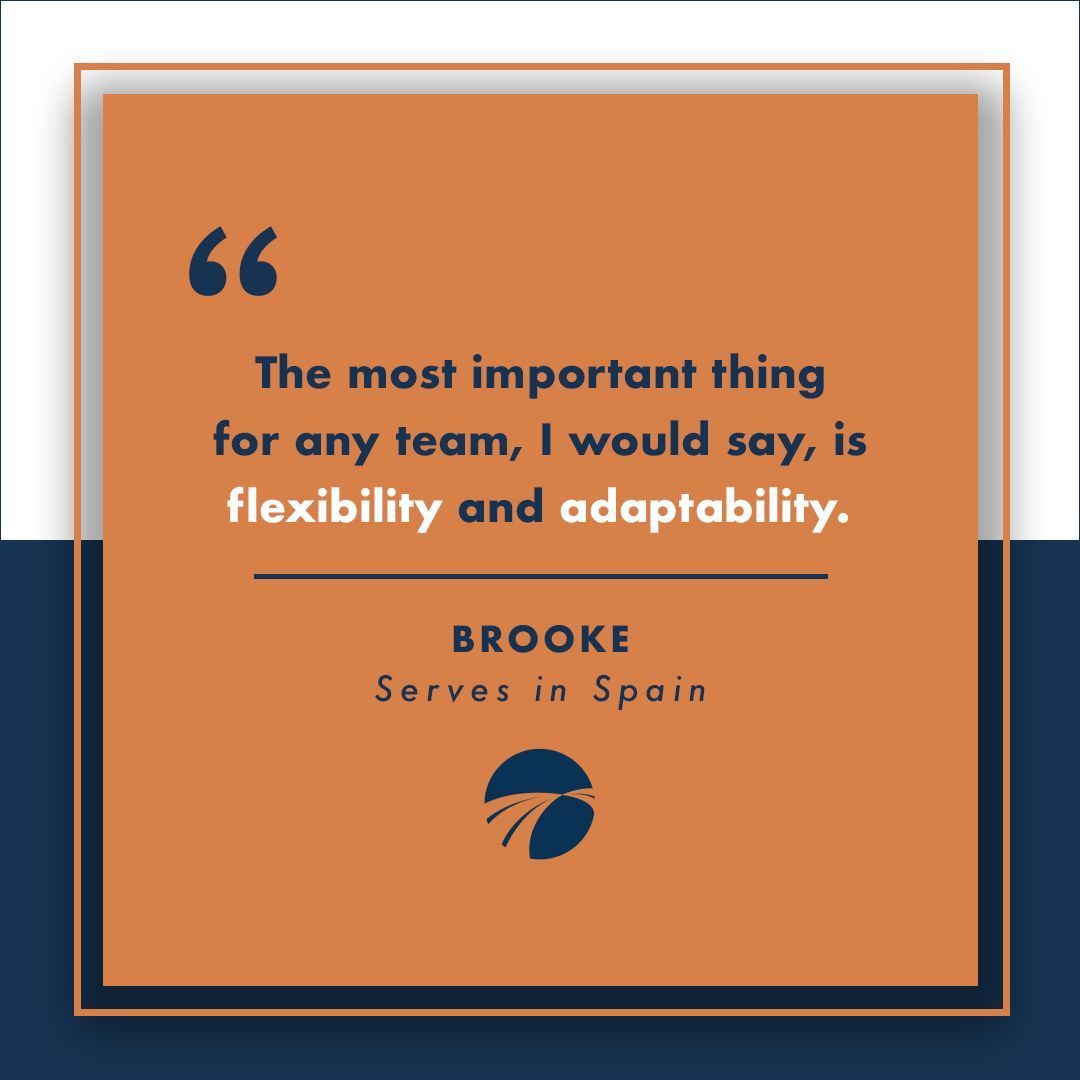
At SEND International, we’ve seen time and again how God brings the right people to the right places.
When individuals come with a heart to serve, a willingness to grow, and a desire to build genuine relationships, God uses them in powerful ways. Whether through practical skills or simply a posture of humility and flexibility, each person plays a vital role in the work He is doing around the world.
We asked three of our missionaries to describe what kinds of people or skills are most needed on their teams. Here's what they said...

I believe what’s most needed are people who come with humility and a willingness to grow and be flexible. We need individuals who will allow God to lead them and who are open to learning from and building genuine relationships with the local community.
In addition, Central Asia would be greatly blessed by people willing to live and grow in “secular” jobs, where they can offer something the community values and sees as good and helpful, while also being a light in that context. Flexibility and adaptability in these roles are crucial, as things often don’t go according to plan.



Of course, God can work through people from all backgrounds! That said, some of the greatest needs right now are:
• Individuals gifted in discipleship through biblical storytelling
• Those with expertise in community development, livelihood practices, agriculture, the medical field, or education
• Someone experienced in accounting or business management to help run the administrative side of a non-profit in-country
• People with a passion to see movements of Muslims come to follow Jesus

The most important thing for any team, I would say, is flexibility and adaptability. For missionaries, everything is new: culture, language, food, and more. You have to be able to adjust and stay flexible in order to be effective in ministry. It’s not always easy, and it can take time, but being open to change and willing to put in the work is essential.

Not sure how God can use you?
Explore mission opportunities and connect with a SEND missions coach who’ll walk alongside you.
Additional Posts




